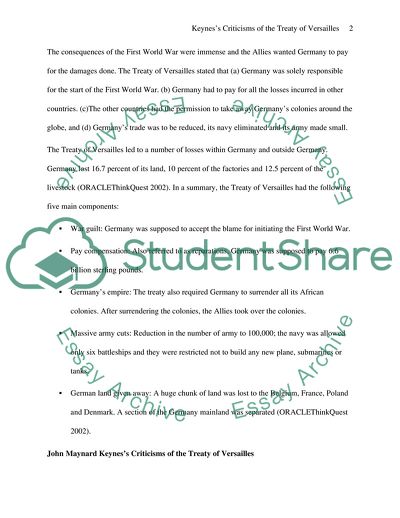Cite this document
(John Maynard Keynes's Criticisms of the Treaty of Versailles Essay, n.d.)
John Maynard Keynes's Criticisms of the Treaty of Versailles Essay. Retrieved from https://studentshare.org/politics/1748246-explain-and-evaluate-john-maynard-keyness-criticisms-of-the-treaty-of-versailles
John Maynard Keynes's Criticisms of the Treaty of Versailles Essay. Retrieved from https://studentshare.org/politics/1748246-explain-and-evaluate-john-maynard-keyness-criticisms-of-the-treaty-of-versailles
(John Maynard Keynes'S Criticisms of the Treaty of Versailles Essay)
John Maynard Keynes'S Criticisms of the Treaty of Versailles Essay. https://studentshare.org/politics/1748246-explain-and-evaluate-john-maynard-keyness-criticisms-of-the-treaty-of-versailles.
John Maynard Keynes'S Criticisms of the Treaty of Versailles Essay. https://studentshare.org/politics/1748246-explain-and-evaluate-john-maynard-keyness-criticisms-of-the-treaty-of-versailles.
“John Maynard Keynes'S Criticisms of the Treaty of Versailles Essay”. https://studentshare.org/politics/1748246-explain-and-evaluate-john-maynard-keyness-criticisms-of-the-treaty-of-versailles.


